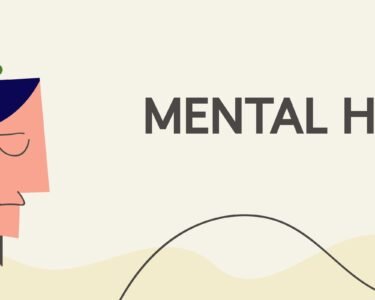Belly fat is one of the most stubborn and frustrating problems for many people on a weight-loss journey. You may be eating right, exercising regularly, and even staying consistent with your lifestyle — yet the fat around your midsection refuses to budge. The reason might not always be the food you eat or the number of hours you spend in the gym. Sometimes, the real obstacle lies in a simple, often-overlooked habit that quietly sabotages your progress.
That habit is poor sleep — or more specifically, not getting enough quality sleep. Yes, lack of sleep can be one of the biggest reasons your belly fat won’t go away, no matter how hard you try.
The Connection Between Sleep and Belly Fat
Most people underestimate how crucial sleep is for overall health, metabolism, and body composition. While diet and exercise are often highlighted as the keys to fat loss, sleep is the third pillar that holds everything together. When your sleep schedule is out of balance, your body’s natural rhythm, known as the circadian rhythm, is disrupted. This affects hormones that regulate hunger, stress, and fat storage.
During deep sleep, your body undergoes critical repair and recovery processes. Hormones like growth hormone and leptin are released, which help regulate metabolism, muscle repair, and fat utilization. But when you don’t get enough rest, your body produces more cortisol, the stress hormone that encourages fat storage — particularly around the abdomen.
How Poor Sleep Leads to Belly Fat
Let’s break down how inadequate or poor-quality sleep directly contributes to fat accumulation:
1. Hormonal Imbalance
Lack of sleep disturbs the delicate balance between two key hormones:
- Ghrelin – the hunger hormone, which increases appetite.
- Leptin – the satiety hormone, which signals fullness.
When you sleep less than 6–7 hours a night, ghrelin levels go up and leptin levels drop. As a result, you feel hungrier and crave high-calorie, sugary foods. This makes overeating more likely, especially late at night, when metabolism is slower.
2. Elevated Cortisol Levels
Cortisol is released during stress, and chronic sleep deprivation acts as a stress trigger. When cortisol levels remain high, your body starts storing fat — particularly in the abdominal region — as a survival mechanism. Over time, this not only leads to visible belly fat but also increases the risk of insulin resistance, type 2 diabetes, and cardiovascular disease.
3. Insulin Resistance
Sleep loss also affects how your body processes glucose. When you’re tired, your cells become less sensitive to insulin, the hormone that helps move sugar from your blood into your cells for energy. This causes your blood sugar levels to rise, leading to fat accumulation, especially around the belly. Eventually, it can make it harder for you to lose fat even with a calorie deficit.
4. Poor Decision-Making and Cravings
After a night of poor sleep, your brain’s decision-making ability weakens. The part of the brain responsible for impulse control — the prefrontal cortex — becomes less active, while the reward center becomes more active. This means you’re more likely to reach for processed, comfort foods and skip workouts, further slowing your progress.
How Much Sleep Do You Really Need?
The optimal sleep duration varies slightly for each person, but experts generally recommend 7 to 9 hours of uninterrupted sleep per night for adults. More than just the number of hours, sleep quality matters too. You should wake up feeling refreshed, not groggy or fatigued.
If you’re constantly waking up tired despite going to bed early, it might be worth evaluating your sleep hygiene — the habits and environment that affect your rest.
Habits That Disrupt Sleep (and Promote Belly Fat)
If you’ve been struggling with belly fat despite a healthy lifestyle, check if you’re guilty of any of these sleep-disrupting habits:
- Late-Night Screen Time: The blue light from phones and TVs interferes with melatonin production, making it harder to fall asleep.
- Caffeine in the Evening: Coffee, tea, or energy drinks consumed late in the day can stay in your system for hours, reducing deep sleep quality.
- Irregular Sleep Schedule: Going to bed and waking up at different times every day confuses your body’s internal clock.
- Stress Before Bed: Working, scrolling social media, or worrying about the next day can keep your mind active, preventing relaxation.
- Eating Too Close to Bedtime: Heavy or spicy meals late at night can cause discomfort and indigestion, leading to disturbed sleep.
Simple Tips to Improve Sleep and Reduce Belly Fat
Making small, consistent changes can help improve sleep quality — and in turn, help your body burn fat more efficiently.
1. Establish a Regular Sleep Schedule
Go to bed and wake up at the same time every day, even on weekends. This helps regulate your body’s internal clock and makes falling asleep easier.
2. Create a Relaxing Night Routine
Spend the last 30 minutes before bed doing calming activities — like reading, listening to soft music, or deep breathing. Avoid screens and bright lights.
3. Optimize Your Bedroom Environment
Keep your room cool, dark, and quiet. Invest in comfortable bedding and avoid bright LED lights. Even a small improvement in your sleep setting can make a big difference.
4. Limit Caffeine and Alcohol
Avoid caffeine after 3 PM and limit alcohol, as both can disrupt sleep cycles and prevent deep restorative rest.
5. Exercise, But Not Too Late
Regular exercise promotes better sleep and faster metabolism, but intense workouts right before bedtime may raise heart rate and body temperature, making it harder to fall asleep.
6. Manage Stress
Try meditation, yoga, or journaling to calm your mind before bed. Lowering stress levels helps regulate cortisol and prevents nighttime snacking.
The Bigger Picture
When it comes to losing belly fat, it’s essential to look at your body holistically. Nutrition and exercise are important, but without proper sleep, your efforts can only go so far. A well-rested body burns calories more efficiently, manages stress better, and maintains a healthier hormonal balance.
So, if you’ve been consistent with your workouts and diet yet still see little progress, it’s time to ask yourself — am I getting enough good-quality sleep? The answer might be the missing link in your fat-loss journey.
Conclusion
Belly fat isn’t just about calories in versus calories out — it’s also about how well your body recovers and manages stress. Sleep is not a luxury; it’s a biological necessity. When you prioritize sleep, you’re not just giving your body rest — you’re giving it the power to heal, balance hormones, and efficiently burn fat.
So tonight, switch off your phone early, dim the lights, and give yourself the gift of deep, uninterrupted sleep. You might just find that your belly fat starts melting away — one restful night at a time.
Do Follow Us On Instagram







